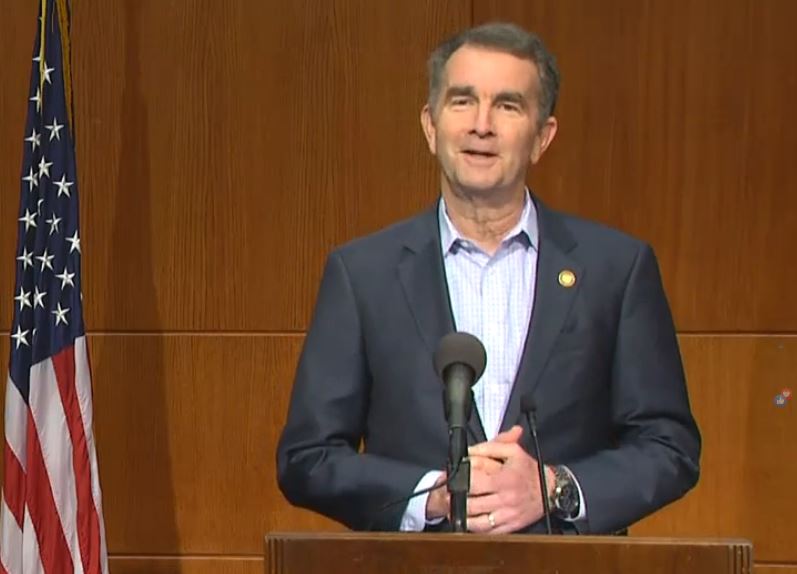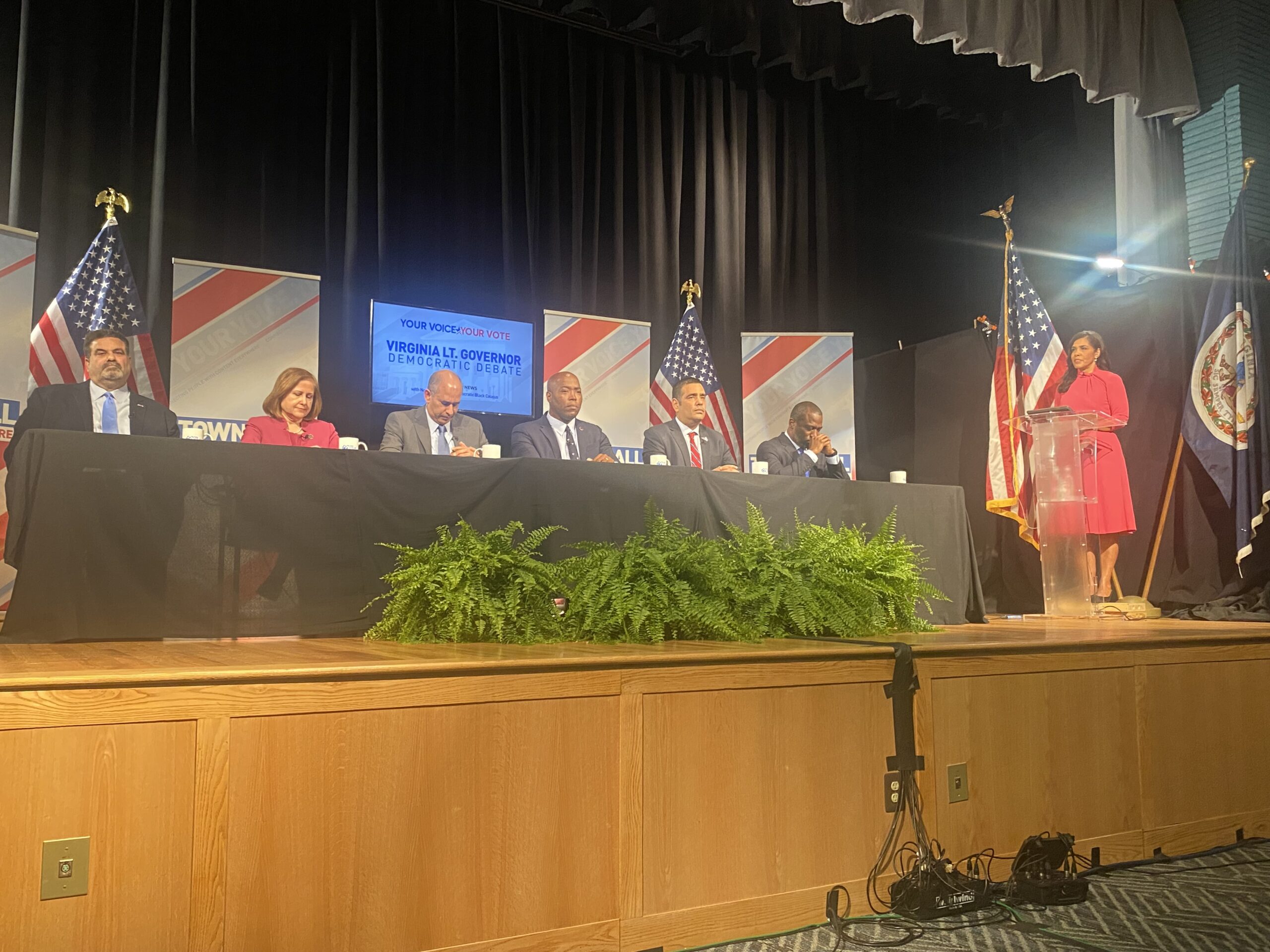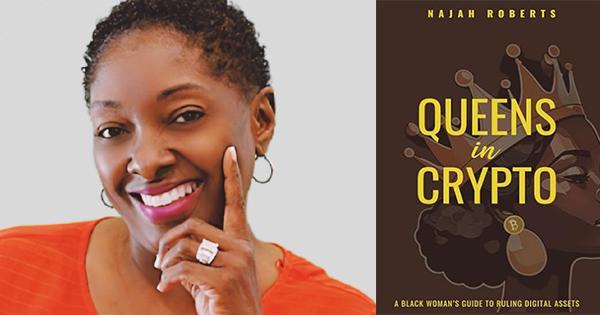Governor Northam Announces Legislative Steps to Increase Equity in State Procurement
After disparity study identifies clear need to address diversity in state contracting, Virginia to establish goals of 23.1 percent discretionary spending with woman- and minority-owned businesses and 42 percent with SWaM-certified businesses.
Governor Ralph Northam today announced the results of the Commonwealth’s disparity study, which demonstrate the need for narrowly tailored race- and gender-conscious measures to increase equitable opportunities for woman- and minority-owned businesses in state contracting. The outcomes of the study will guide the Northam Administration’s ongoing work with General Assembly leaders to increase supplier diversity and equity in the state procurement process. Read the executive summary of the 2020 disparity study here.
“State contracting, which represents more than $6 billion annually, can be a powerful tool to create economic opportunity,” said Governor Northam. “This study makes clear that the Commonwealth has significant work to do to maximize the participation of woman- and minority-owned businesses in state contract work. Our Administration remains committed to ensuring Virginia supports and benefits from our diverse business community, and this legislation will help advance our ongoing efforts to make the public procurement process more equitable, inclusive, and transparent.”
To encourage woman- and minority-owned business participation in the procurement process, the Commonwealth will support a substitute to House Bill 1784, patroned by Delegates Jeion Ward and Rodney Willett and Senators Jennifer McClellan and Mamie Locke. This bill would establish an overall goal of 23.1 percent discretionary spending with woman- and minority-owned businesses. This percentage represents the average of the participation of woman- and minority-owned businesses in state procurement work over the past five years and their availability for state procurement work. This would apply to discretionary spending in categories from which the Commonwealth derives procurement orders, prime contracts, and subcontracts. This legislation also codifies Governor Northam’s goal of procuring at least 42 percent discretionary spending from SWaM-certified businesses.
In addition, House Bill 1784 establishes a new division at the Department of Small Business and Supplier Diversity (DSBSD) that will work closely with the Department of General Services (DGS), Virginia’s primary procurement agency, to ensure that the SWaM-certified business goal of 42 percent and the woman- and minority-owned business goal of 23.1 percent are met each year, and there is appropriate monitoring of prime contractor compliance. The new division, with the support of DGS, will collect comprehensive data on all subcontracts, regardless of subcontractors’ characteristics or whether they are SWaM-certified or a woman- or minority-owned businesses, and help DSBSD continue operating other aspects of the SWaM program, including SWaM certification. Collecting data on all subcontracts will help ensure that the Commonwealth monitors the participation of woman- and minority-owned businesses in its work as accurately as possible, identifies additional businesses that could become certified, and identifies future subcontracting opportunities for woman- and minority-owned businesses. “I am proud to carry legislation that will enable woman- and minority-owned businesses across the Commonwealth to participate in Virginia’s procurement process,” said Delegate Jeion Ward.
“I look forward to working with Governor Northam and my colleagues in the General Assembly to ensure a more equitable Virginia.” “This legislation is a significant step forward for woman- and minority-owned businesses that will have a lasting impact for many years to come,” said Senator Jennifer McClellan. “We should continue to advocate for periodic disparity studies so that the Commonwealth remains not only the best state for business but also the most equitable in which to do business.” “House Bill 1784 will open more doors for woman- and minority-owned businesses and help them navigate the Commonwealth’s procurement system,” said Delegate Rodney Willett.
“I encourage my fellow members to support this impactful bill.” “This disparity study showed substantial disparities between the participation and availability of woman- and minority-owned businesses, and it is critical that we work together to remedy these disparities,” said Senator Mamie Locke. “We cannot wait any longer. We must work together to pass House Bill 1784.”
The governor directed the Commonwealth to conduct an updated disparity study when he signed Executive Order Thirty-Five in July 2019, which also set a goal for state agencies and institutions to procure at least 42 percent of discretionary spending from certified small-, women-, and minority-owned (SWaM) businesses. In February 2020, DSBSD selected BBC Research and Consulting (BBC) to conduct the study. The study found that 13.4 percent of total state contracts were awarded to woman- and minority-owned businesses from 2014 to 2019. The most recent disparity study was published in 2011, found that only 2.82 percent of all state contracts were awarded to woman- and minority-owned businesses. While these results show improvement, the 2020 study also found that woman- and minority-owned businesses would be expected to receive 32.8 percent of state contracting dollars based on their availability to provide goods and services to the Commonwealth, demonstrating that there is more work to do.
“This disparity study has been a top priority for the Northam Administration since the beginning of the Governor’s term, and the findings and proposed legislation are the result of hours of in-depth interviews, research, and analysis by BBC,” said Secretary of Commerce and Trade Brian Ball. “We commend the teams at the Departments of Small Business and Supplier Diversity, General Services, and Transportation, and look forward to working with the General Assembly and key stakeholders to implement these measures and increase access for woman- and minority-owned companies seeking to do business with the Commonwealth.



